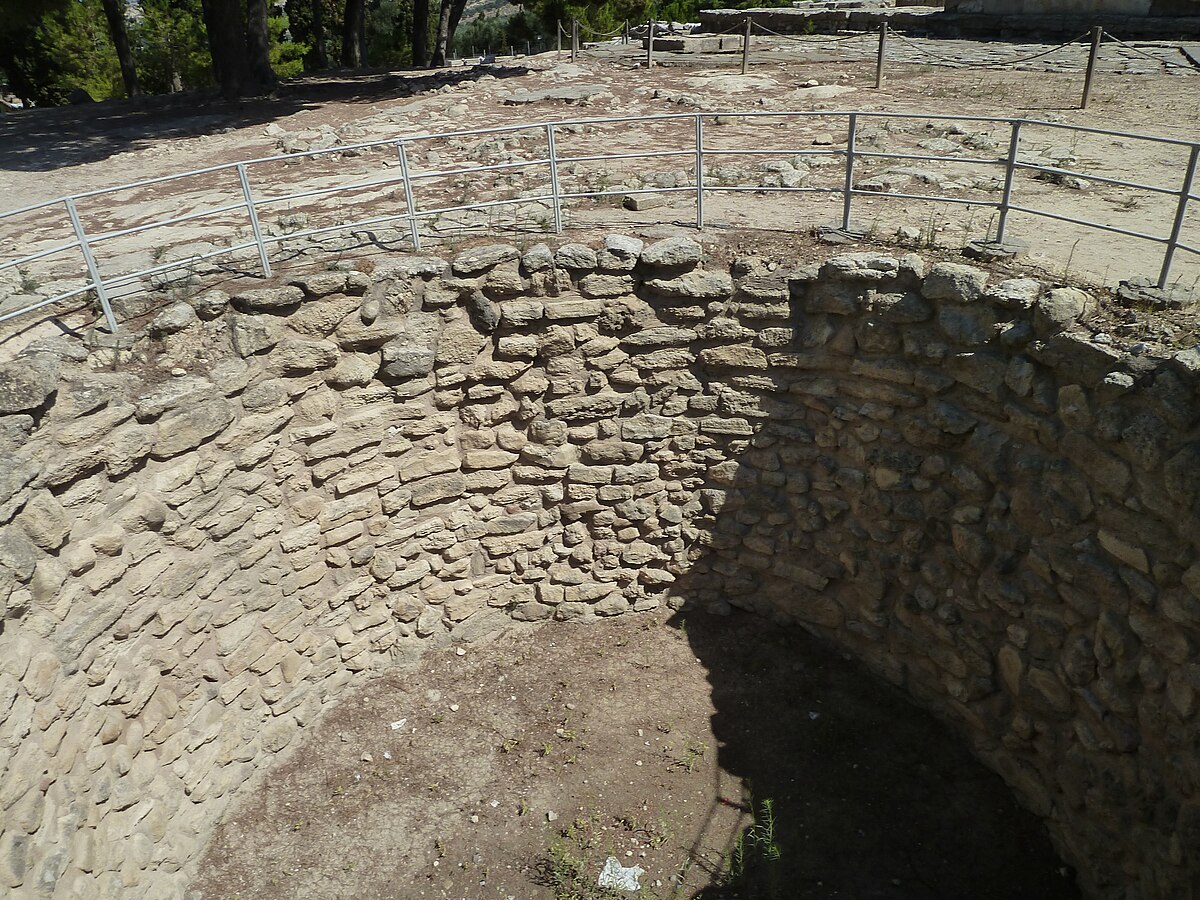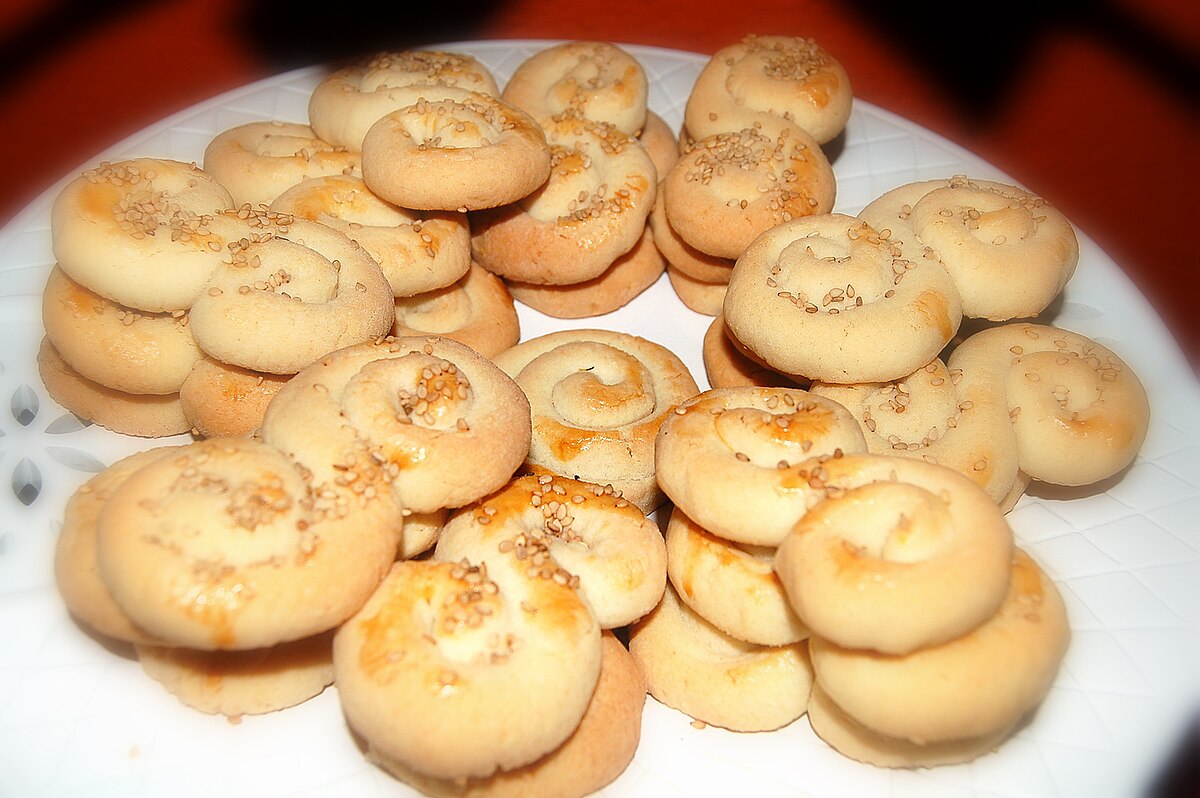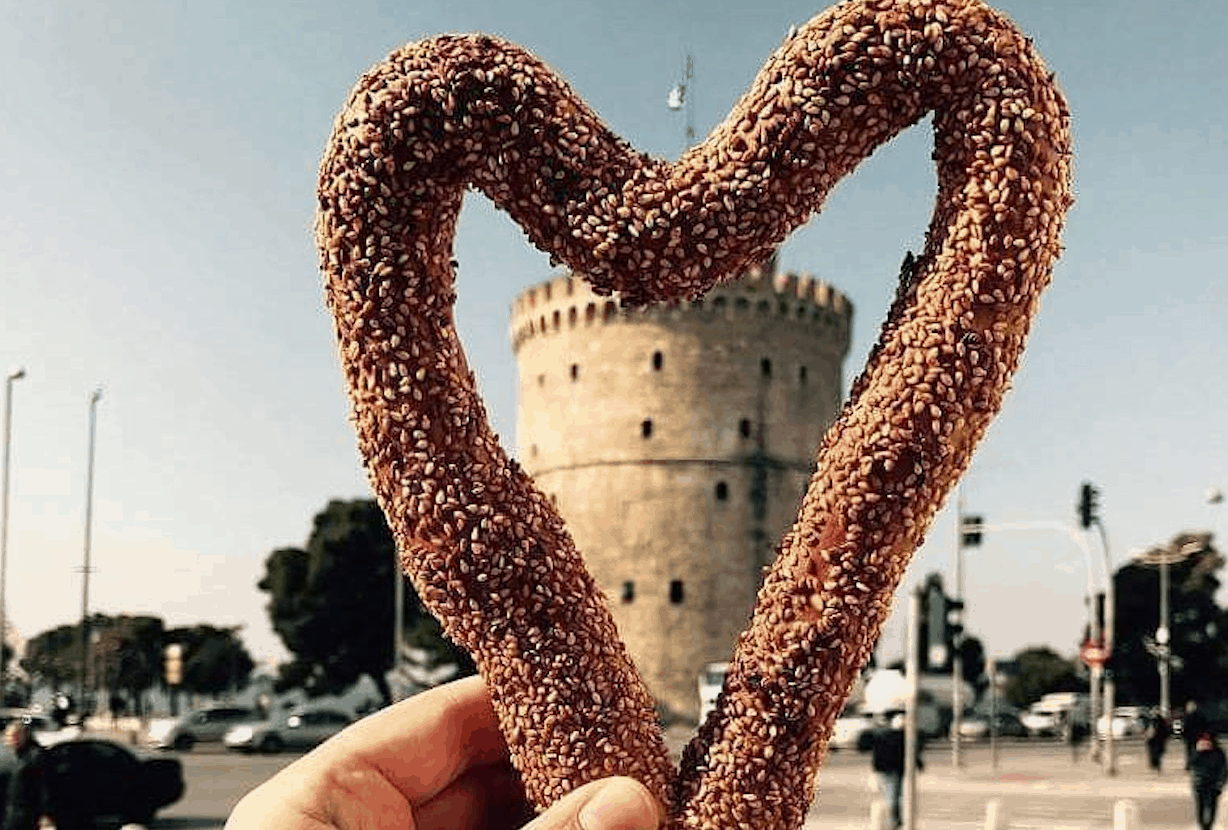Menu
Install the app
How to install the app on iOS
Follow along with the video below to see how to install our site as a web app on your home screen.
Note: This feature may not be available in some browsers.
You are using an out of date browser. It may not display this or other websites correctly.
You should upgrade or use an alternative browser.
You should upgrade or use an alternative browser.
1 - 20 of 24 Posts
greek_ggirl
Active member
I love Koulourakia!! Especially with a bit of orange zestKoulouaria are a bread-like cake that is traditionally served during Easter dinner. This is an especially popular dish in the Greek islands, although you can also find them on the mainland. I really miss getting together with the whole family and making these, it's one of my favourite traditions.
View attachment 496
I love Koulourakia and Kouloura both. Orange zest in koulourakia makes it so delicious! The Kouloura breads are always a staple in my house at Easter.I love Koulourakia!! Especially with a bit of orange zestthey're my favorite
greek_ggirl
Active member
At my house too! I wish I made them more often tbhI love Koulourakia and Kouloura both. Orange zest in koulourakia makes it so delicious! The Kouloura breads are always a staple in my house at Easter.
ellinasgolfer0320
Well-known member
It's mandatory that you sing plathw koulourakia when you make these.
k_tsoukalas
Administrator
Could you share the words? I have never sung it! I make these every Easter, they are a tradition in my household...It's mandatory that you sing plathw koulourakia when you make these.
ellinasgolfer0320
Well-known member
Sure.Could you share the words? I have never sung it! I make these every Easter, they are a tradition in my household...
Me ta dyo xerakia (with both hands)
plathw koulourakia (I make koulourakia)
koulourakia, koulourakia
O fournos tha ta psisei (the oven will bake them)
to spiti tha myrisei (the house will smell)
koulourakia, koulourakia
Ti glyka ki afrata (How sweet and fluffy)
ola myrodomata (all fragrant)
koulourakia, koulourakia
Gi' auto kai to sxoleio tous (so that's why at their school)
pairnoun ta paidakia (the kids bring them)
koulourakia, koulourakia
Last edited:
In my native town, in Magna Graecia [south Italy], there used to be the tradition of making Cullura (Koulura) for easter. It was sweetbread or bun with an egg baked in it. A greater variety of sweets was made for Palm Sunday, like pretzels etc., when they were attached to a palm-branch and taken to church. Little toys and crosses were also made by interweaving palm fronds. //Speaking of feasts and traditions, I remembered that the 8th of September used to be, in my town, the feast of MyLady of Graces, to whom a rustic shrine was dedicated, while outdoors a fair was held: merchants from town and other towns brought their wares and even animals (cattle) for sale. On this date, the Church officially celebrates the Birth of the Virgin Mary. The shrine is in a district of the township that must have been the civic center of the newly founded town of Thourioi and may have been a replica of the shrine dedicated to Athena Krathia (reported by Herodotus). When the people switched to Christianity, the rededication inevitably occurred. Athena was born out of Zeus' head, Mary was born normally, but by a miracle from Ann and Joachim. // I miss the ice cream I used to buy at the Fair.At my house too! I wish I made them more often tbh
This is so cool - I am going to try to sing this song next tie I make this!! My mother used to sing a song like this but I never knew the words...Sure.
Me ta dyo xerakia (with both hands)
plathw koulourakia (I make koulourakia)
koulourakia, koulourakia
O fournos tha ta psisei (the oven will bake them)
to spiti tha myrisei (the house will smell)
koulourakia, koulourakia
Ti glyka ki afrata (How sweet and fluffy)
ola myrodomata (all fragrant)
koulourakia, koulourakia
Gi' auto kai to sxoleio tous (so that's why at their school)
pairnoun ta paidakia (the kids bring them)
koulourakia, koulourakia
nm1999
Active member
Yes! Let's keep these traditions aliveThis is so cool - I am going to try to sing this song next tie I make this!! My mother used to sing a song like this but I never knew the words...
I totally agree, too many are being forgotten.Yes! Let's keep these traditions alive
As I have been investigating words, since my retirement, now I wondered about the origin of the name "Koulourakia"or, in my native language, "koulloura/kouddroura". Wikipedia does not help; so, I turned to a lexikon, the Liddlell-Scott "A Greek-English Lexikon" and then the Bailly "Greek-French Dictionary", which report the literature source of the Classical Greek words. Bailly cites "Koulloura", which is described as a small oval loaf of bread,or roll, sweetened, especially for infants. Thus, the tradition in question goes back to pre-Christian times, and obviously, the insertion of an egg (in larger rolls) must be specifically from Easter or egg/myth times. "Koulourakia" may be also a classical word, meaning "koulloura stuff" through the adjective *Koullourakios (which needs confirmation). Good stuff!Sure.
Me ta dyo xerakia (with both hands)
plathw koulourakia (I make koulourakia)
koulourakia, koulourakia
O fournos tha ta psisei (the oven will bake them)
to spiti tha myrisei (the house will smell)
koulourakia, koulourakia
Ti glyka ki afrata (How sweet and fluffy)
ola myrodomata (all fragrant)
koulourakia, koulourakia
Gi' auto kai to sxoleio tous (so that's why at their school)
pairnoun ta paidakia (the kids bring them)
koulourakia, koulourakia
ellinasgolfer0320
Well-known member
koulouraki comes from the word koulouri. Try searching that. "aki" just means little in Greek. The bread with the egg in it is called tsourekiAs I have been investigating words, since my retirement, now I wondered about the origin of the name "Koulourakia"or, in my native language, "koulloura/kouddroura". Wikipedia does not help; so, I turned to a lexikon, the Liddlell-Scott "A Greek-English Lexikon" and then the Bailly "Greek-French Dictionary", which report the literature source of the Classical Greek words. Bailly cites "Koulloura", which is described as a small oval loaf of bread,or roll, sweetened, especially for infants. Thus, the tradition in question goes back to pre-Christian times, and obviously, the insertion of an egg (in larger rolls) must be specifically from Easter or egg/myth times. "Koulourakia" may be also a classical word, meaning "koulloura stuff" through the adjective *Koullourakios (which needs confirmation). Good stuff!
Last edited:
Thank you for your suggestion. However, I think we are a bit confused about Greek -- ancient/classical and modern Greek. For instance, I don't find "coulouri" in vocabulaties/lexikons of classical Greek. Did some etymologist propose it hypothetically as the source of the modern Koulouraki? Furthermore, I don't find AKI as either one of the adjectives for "little", or as a diminutive-making ending, whereas -ION is the typical classical diminutive ending. I was wishing that the lexikons had "tsureki", since it would show the difference from Kolix [= a roll or loaf of coarse bread], which Durrell-Scott equates with Kollouros. Incidentally, some of the classical words have variants, wherefore they are spelled with either one or two L, and the initial syllable is either KOU- or KO-, but Kolouros (= fallen off, troncated) is obviously a homophone of, not identical with, the aforementioned Kollouros.koulouraki comes from the word koulouri. Try searching that. "aki" just means little in Greek. The bread with the egg in it is called tsoureki
auroracoor1
Active member
Really? So then how come Greeks add "Aki" to make everything "little"?Thank you for your suggestion. However, I think we are a bit confused about Greek -- ancient/classical and modern Greek. For instance, I don't find "coulouri" in vocabulaties/lexikons of classical Greek. Did some etymologist propose it hypothetically as the source of the modern Koulouraki? Furthermore, I don't find AKI as either one of the adjectives for "little", or as a diminutive-making ending, whereas -ION is the typical classical diminutive ending. I was wishing that the lexikons had "tsureki", since it would show the difference from Kolix [= a roll or loaf of coarse bread], which Durrell-Scott equates with Kollouros. Incidentally, some of the classical words have variants, wherefore they are spelled with either one or two L, and the initial syllable is either KOU- or KO-, but Kolouros (= fallen off, troncated) is obviously a homophone of, not identical with, the aforementioned Kollouros.
ellinasgolfer0320
Well-known member
Everything you're saying is over my head. For ancient Greek I'll need my wife... she studied it from middle school through high school (in Greece) and was forced to learn 1000s of words and learn the grammar. I, on the other hand, just know how to speak Greek and that's it haha. "Aki" is a suffix and it has several meanings. Adding "aki" to the word can mean "little" (e.g. skilo -> skilaki = puppy) but it can also be a term of endearment (giannis -> giannaki = little john/johnny). You could probably google "what does 'aki' mean on Greek" and find an explanation.Thank you for your suggestion. However, I think we are a bit confused about Greek -- ancient/classical and modern Greek. For instance, I don't find "coulouri" in vocabulaties/lexikons of classical Greek. Did some etymologist propose it hypothetically as the source of the modern Koulouraki? Furthermore, I don't find AKI as either one of the adjectives for "little", or as a diminutive-making ending, whereas -ION is the typical classical diminutive ending. I was wishing that the lexikons had "tsureki", since it would show the difference from Kolix [= a roll or loaf of coarse bread], which Durrell-Scott equates with Kollouros. Incidentally, some of the classical words have variants, wherefore they are spelled with either one or two L, and the initial syllable is either KOU- or KO-, but Kolouros (= fallen off, troncated) is obviously a homophone of, not identical with, the aforementioned Kollouros.
Last edited:
Everything you're saying is over my head. For ancient Greek I'll need my wife... she studied it from middle school through high school (in Greece) and was forced to learn 1000s of words and learn the grammar. I, on the other hand, just know how to speak Greek and that's it haha. "Aki" is a suffix and it has several meanings. Adding "aki" to the word can be mean little (e.g. skilo -> skilaki = puppy) but it can also be a term of endearment (giannis -> giannaki = little john/johnny). You could probably google "what does 'aki' mean on Greek" and find an explanation.
As you speak (modern) Greek, your information about the suffix -aki, and similar information I have just found, expands my acquaintance with the modern language, but as an etymologist I am still uncertain about its provenance; I still suppose it arose from the classical adjective *koulourAKIOS or KoullourAKIOS. I also found that some other diminutive or endearing terms are present also in derived dialects, such as Latin and my native language. The Greek linguistic ekoumene is immense!Everything you're saying is over my head. For ancient Greek I'll need my wife... she studied it from middle school through high school (in Greece) and was forced to learn 1000s of words and learn the grammar. I, on the other hand, just know how to speak Greek and that's it haha. "Aki" is a suffix and it has several meanings. Adding "aki" to the word can be mean little (e.g. skilo -> skilaki = puppy) but it can also be a term of endearment (giannis -> giannaki = little john/johnny). You could probably google "what does 'aki' mean on Greek" and find an explanation.
nadellii
Active member
Kind of going over my head as well LOLEverything you're saying is over my head. For ancient Greek I'll need my wife... she studied it from middle school through high school (in Greece) and was forced to learn 1000s of words and learn the grammar. I, on the other hand, just know how to speak Greek and that's it haha. "Aki" is a suffix and it has several meanings. Adding "aki" to the word can mean "little" (e.g. skilo -> skilaki = puppy) but it can also be a term of endearment (giannis -> giannaki = little john/johnny). You could probably google "what does 'aki' mean on Greek" and find an explanation.
Wikipedia has some info - what do you guys think, does their etymology make sense for kouloura and koulourakia?

 en.wikipedia.org
en.wikipedia.org

 en.wikipedia.org
en.wikipedia.org
I find it interesting that in the Koulourakia piece, they mentioned the Minoans.

Kouloura - Wikipedia

Koulourakia - Wikipedia
I find it interesting that in the Koulourakia piece, they mentioned the Minoans.
This article is saying that Koulouri comes from an Ancient Greek word "kollikon"

 greekcitytimes.com
greekcitytimes.com
That's all I've got for now. This is an interesting discussion!

Koulouri - Greece’s Favourite Breakfast On The Run + Recipe
If you are in Greece and after some breakfast on the run, Koulouri (Κουλούρι) is a fabulous option for you, as it’s both filling and healthy!
That's all I've got for now. This is an interesting discussion!
JOIN THE DISCUSSION AND READ OTHER GREEK INFO:
Netflix Show about Alexander the Great
- xmelissaa
- Greek Traditions Forum
- Replies: 3
I just noticed there was a show about Alexander the Great on Netflix. How is it?
I have been noticing some buzz that it's fairly controversial, but those who are unhappy about it ... I can't tell if they actually know about him, or if they are just upset about how he was depicted.
I am trying to figure out if I want to watch it so your honest reviews are welcome.
I have studied Alexander the Great a little bit and no a bit about his life, so I am sincerely hoping it's worth my time. I am between shows at the moment.
I have been noticing some buzz that it's fairly controversial, but those who are unhappy about it ... I can't tell if they actually know about him, or if they are just upset about how he was depicted.
I am trying to figure out if I want to watch it so your honest reviews are welcome.
I have studied Alexander the Great a little bit and no a bit about his life, so I am sincerely hoping it's worth my time. I am between shows at the moment.
Navigating Greek Lenten Fasting - Advice?
- paharo45
- Greek Traditions Forum
- Replies: 1
Lent is here and all my friends and family have been asking "what are you doing for lent this year?" They're all "giving something up" but I decided I wanted to fast. I would love your help and advice because this is the first time I am doing things in a stricter way. I resolve to see it through!
It's supposed to be a a time of reflection, purification, and preparation for the celebration of Easter, and the diet plays a significant part in this spiritual journey. I don't want to get so obsessed with the "rules" that I lose myself in them and forget why I am fasting int he first place.
Thanks in advance!
It's supposed to be a a time of reflection, purification, and preparation for the celebration of Easter, and the diet plays a significant part in this spiritual journey. I don't want to get so obsessed with the "rules" that I lose myself in them and forget why I am fasting int he first place.
Thanks in advance!
Greek family customs - Personal related
- Tunnelboy
- Greek Traditions Forum
- Replies: 0
Hi there. Not sure if this is the right forum, but I've got some personal issues with my family. My brother in law (73) is Greek. His wife (my sister) is not. They have a daughter (34) (my niece) that "sides" more with the Greek culture.
My niece has never left home, and has never paid rent or paid for food. She's been mostly jobless although she has worked a few jobs here and there. My sister is fed up with it, but when she confronts my BIL, he says "Greeks don't do that". And what he is implying (I guess) is that Greeks take care of their family in this way.
My BIL had a stroke many years ago and his health is declining rapidly. I am advocating for an attendant to come into the house every day and get him dressed, showered, make him meals, etc. My sister is 73 and she can't physically handle this. She also doesn't want to devote every waking moment to keeping an eye on him. When she suggests an attendant, again, "Greeks don't do that".
Now I'm pretty sure this is all BS, but would love to get some input from any Greek people in this forum.
My niece has never left home, and has never paid rent or paid for food. She's been mostly jobless although she has worked a few jobs here and there. My sister is fed up with it, but when she confronts my BIL, he says "Greeks don't do that". And what he is implying (I guess) is that Greeks take care of their family in this way.
My BIL had a stroke many years ago and his health is declining rapidly. I am advocating for an attendant to come into the house every day and get him dressed, showered, make him meals, etc. My sister is 73 and she can't physically handle this. She also doesn't want to devote every waking moment to keeping an eye on him. When she suggests an attendant, again, "Greeks don't do that".
Now I'm pretty sure this is all BS, but would love to get some input from any Greek people in this forum.
Ideas for Celebrating the New Month - Kalo Mina
- voula_slat
- Greek Traditions Forum
- Replies: 1
Growing up, I heard my family say this all the time when there was a new month. I finally started paying attention to the tradition and ritual of saying it.
Kalo Mina actually means "Good Month" but my family took it a step further. We developed the habit of doing something special as a family to celebrate.It depends which day it falls. Some things we've done:
- Brunch - We do this if it falls on a weekend.
- Dinner - Going out to dinner is great any time of the year!
- Journaling - We've done family journaling parties, sitting together reflecting on the month. Sometimes we read aloud what we write (depends how the month went LOL)
- Goals - No matter if we do anything, like go out to dinner or brunch, we always sit and review our goals for the month together.
Kalo Mina actually means "Good Month" but my family took it a step further. We developed the habit of doing something special as a family to celebrate.It depends which day it falls. Some things we've done:
- Brunch - We do this if it falls on a weekend.
- Dinner - Going out to dinner is great any time of the year!
- Journaling - We've done family journaling parties, sitting together reflecting on the month. Sometimes we read aloud what we write (depends how the month went LOL)
- Goals - No matter if we do anything, like go out to dinner or brunch, we always sit and review our goals for the month together.
Where did plate smashing come from?
- mj_toronto8
- Greek Traditions Forum
- Replies: 2
When Greeks feel happy and are dancing and have a good time, they've been known to smash plates. I've seen it! It's not just a tourist thing - but they don't do it much because I am sure they won't want to smash their expensive dish wear.
I was just at a wedding and they had purchased plates to smash - so basically they were cheap throwaway plates that actually smashed really well. I almost wonder if they were made for the purpose...
It got me thinking - where did this tradition come from? Does anyone know?
I was just at a wedding and they had purchased plates to smash - so basically they were cheap throwaway plates that actually smashed really well. I almost wonder if they were made for the purpose...
It got me thinking - where did this tradition come from? Does anyone know?
Share and discuss Greek traditions related to Greek weddings, christenings, dance & holidays!
WorldwideGreeks.com is a free online forum community where people can discuss Greek food, travel, traditions, history and mythology.
Join Worldwide Greeks here!
Join Worldwide Greeks here!
JOIN COMMUNITY FOR FREE
LOGIN TO YOUR ACCOUNT



